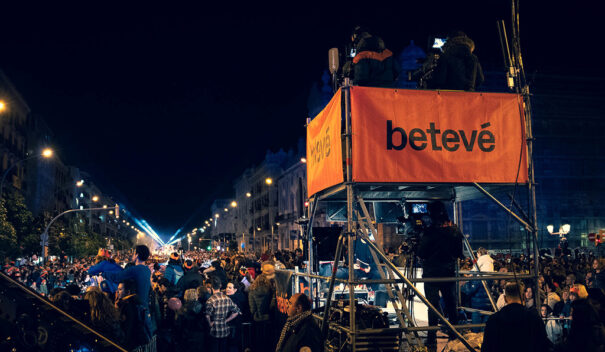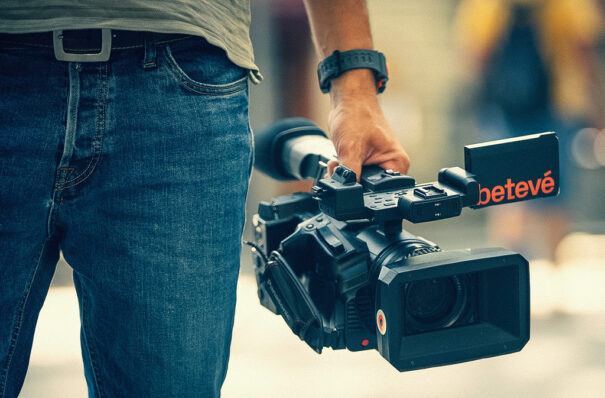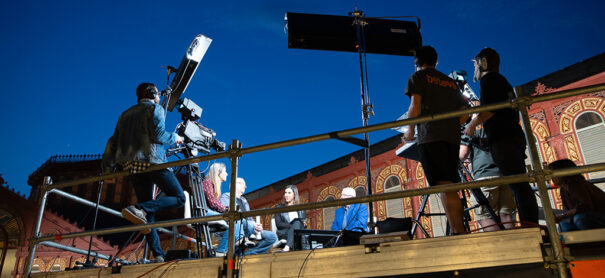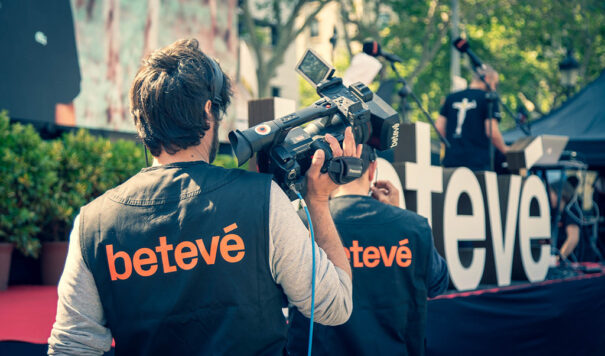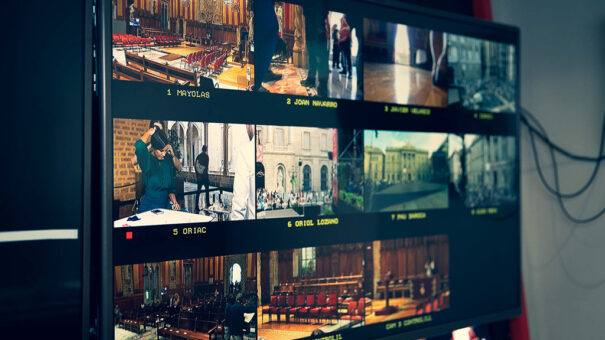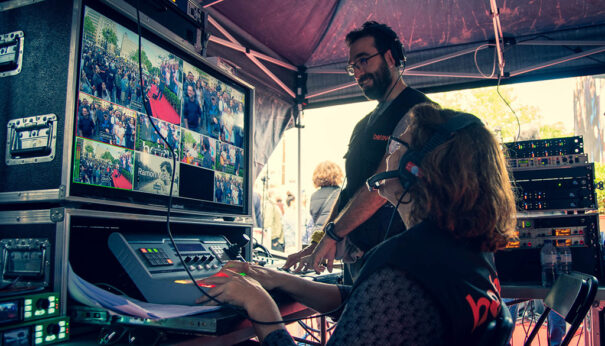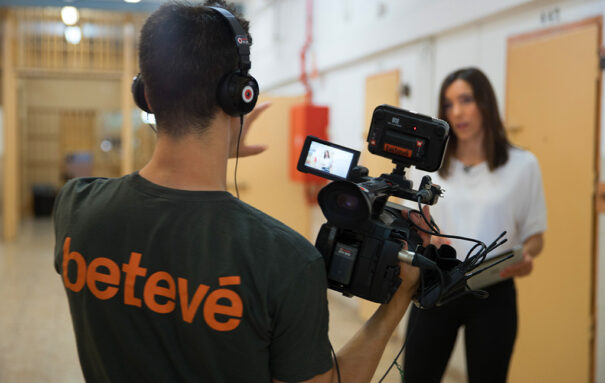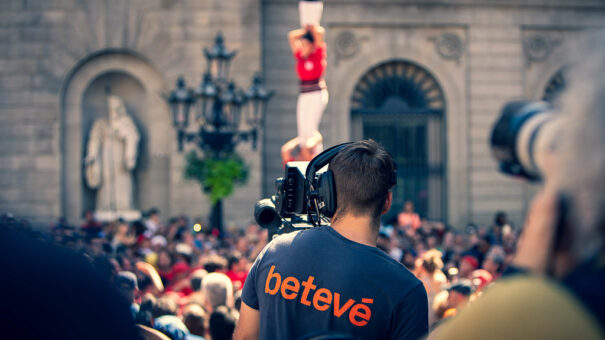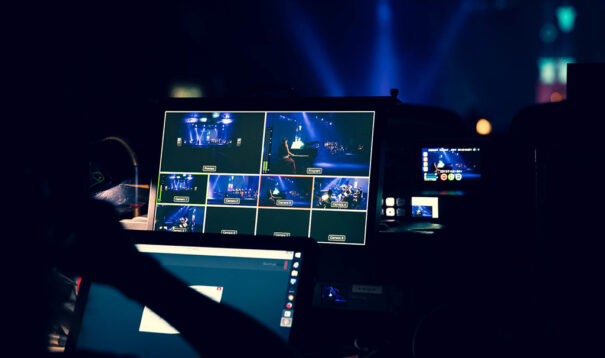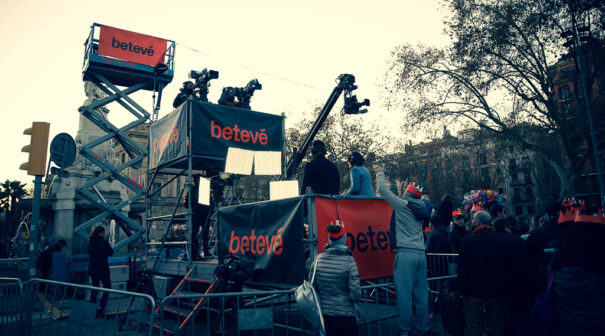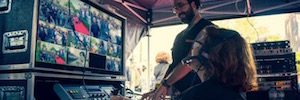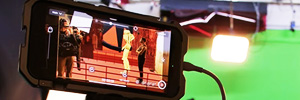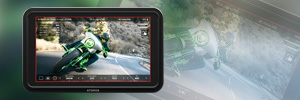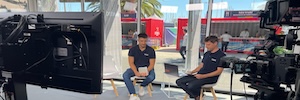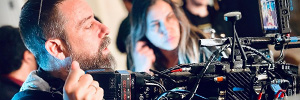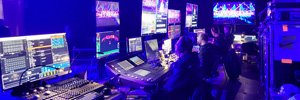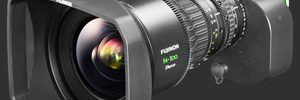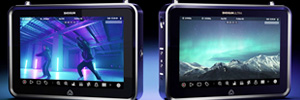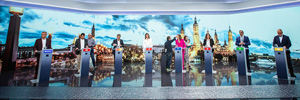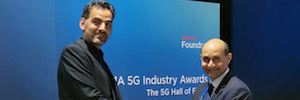El ABC de la producción remota en Betevé
Betevé, televisión dedicada a difundir toda la actualidad de la zona metropolitana de Barcelona, apuesta desde hace varios años por la versatilidad que ofrece la producción remota. A las puertas de un posible cambio de paradigma, con la virtualización y la nube como posibles gamechangers, Oriol Icart, director técnico y de innovación de la cadena, traslada la miríada de técnicas de producción remota a disposición de la televisión catalana.
Desde su nacimiento en 1994, Betevé ha tenido un enfoque tecnológico legado por la valentía de Manuel Huerga, quien más allá de conducir los primeros pasos de la televisión, dirigió el arte de la rompedora ceremonia de apertura de los Juegos Olímpicos de Barcelona 92. Aquella era postolímpica, en la que ciudad condal se abrió al mar y se presentó al mundo como una ciudad dinámica, contemporánea y joven, requería de una televisión local que asumiera estos mismos valores.
Betevé, de este modo, apostó por “tecnologías que en aquel momento nadie usaba”, traslada Icart. Desde el uso de cámaras compactas hasta la emisión a través de un servidor de vídeo, Betevé, quizá a consecuencia de lo limitado de sus recursos, luchó para encontrar su lugar repensando los pilares tecnológicos que sostenían el broadcast.
En la actualidad, esta filosofía se traduce en un enfoque de producción en la que lo remoto ocupa un papel predominante en su programación a través del uso de múltiples soluciones: “No tenemos los presupuestos que tenemos otros, pero tomamos decisiones aunque sean arriesgadas. Al final, la contención económica hace que la imaginación crezca. Quizá no seremos los primeros en montar una red en 2110, pero sí seremos de los primeros en explorar la producción remota porque va inscrito en nuestra forma de trabajar”.
Las tecnologías cambiarán, pero todas ellas seguirán trabajando en pro del mismo objetivo: cubrir toda la actualidad derivada de Barcelona, una gran ciudad que reúne a un importante porcentaje de la población de Cataluña. “Todas nuestras ganas de seguir mejorando y de ser punteros vienen de aquella época. Forma parte de nuestro ADN”, remarca Icart, quien desvela a los lectores de Panorama Audiovisual las decisiones más cruciales que conducen su producción.
La producción remota, hoy
No es necesario alejarse mucho en el tiempo para situarnos en aquel espacio-tiempo en el que las DSNG y las unidades móviles disfrutaban de un protagonismo absoluto en la inmensa mayoría de televisiones estatales. No cabe duda de que estos equipos perviven y constituyen algunas de las soluciones más fiables in determinadas condiciones. Sin embargo, en un momento en el que la versatilidad y el ahorro de costes se tornan prioridades, estos vehículos motorizados pasan a ocupar un segundo plano. Icart, sin menospreciar en ningún momento la validez de las unidades móviles en todas sus vertientes, considera que lo remoto “no se puede entender” actualmente sin el Internet, “en su amplio sentido”. “Actualmente, para nosotros la producción remota es poder trabajar con varios teléfonos móviles o con mochilas con 4G/5G; con sistemas multicanal sobre internet público, o sobre fibras oscuras que tenemos instaladas en varias infraestructuras de la ciudad. Abarcamos todo”, traslada el director técnico y de innovation de Betevé.
Todas estas vías de producción que despliega con soltura la televisión barcelonesa tienen un denominador común: “El principal concepto de la producción remota pasa por no desplazar todos los medios técnicos a un evento para producirlo. Lo único que tengo que desplazar es la fuente de vídeo, que es la cámara; para el resto, sigo trabajando desde casa”.
Mochilas, FTTH, sistemas multicanal…
La industria audiovisual avanza a gran velocidad, pero el equipo liderado por Icart no se permite bajar el ritmo. The exploración de nuevas oportunidades es una constante. Este esfuerzo, a día de hoy, se ha traducido en la consolidación de “tres sistemas” principales que estructuran su producción.
 El primero, y el más antiguo, traslada Icart, is a instalación de fibra entre la sede de Betevé y el Ayuntamiento de Barcelona, donde hay instaladas 15 cámaras PTZ que se encargará de retransmitir la cobertura del pleno municipal, así como otros eventos celebrados en diferentes emplazamientos del consistorio, como el histórico Saló de Cent.
El primero, y el más antiguo, traslada Icart, is a instalación de fibra entre la sede de Betevé y el Ayuntamiento de Barcelona, donde hay instaladas 15 cámaras PTZ que se encargará de retransmitir la cobertura del pleno municipal, así como otros eventos celebrados en diferentes emplazamientos del consistorio, como el histórico Saló de Cent.
Como no podía ser de otra forma, Betevé también se beneficia de la utilización de “muchas mochilas” que se utilizan en todo tipo de aplicaciones. La televisión cuenta con un parque propio de equipos rentados como service by Overon de la marca TVU, si bien este se escala en función de las necesidades de la producción: “Uno de los últimos eventos que hicimos fue cubrir el triatlón de Barcelona, para el cual usamos 15 cámaras con conexiones inalámbricas, incluyendo drones, grúas o motos en lanchas. Es nuestro día a día”.
“En medio de estos dos sistemas”, se encuentra el tercer eje de sus producciones: los sistemas multitransmisión. “Son equipos con los que puedes recibir sincronizadamente entre 6 y 8 señales que utilizan Internet público con los que se han cubierto obras de teatro, conciertos, inauguraciones o fuegos artificiales”, explica Icart.
Las ventajas de un único ecosistema
Las mochilas ocupan un papel central entre el ecosistema de producción remota de Betevé. Actualmente, la televisión cuenta con ocho equipos, si bien, ya sea para el previamente mencionado triatlón de Barcelona o para otros eventos como la producción del Maratón o las elecciones municipales que ya se divisan en el horizonte, el equipo tecnológico de Icart precisa escalar su equipamiento. Sin embargo, hay una regla fundamental: no combinar diferentes fabricantes. “No nos hemos cerrado a explorar nuevos fabricantes, pero no queremos tener un parque variado porque te puede hacer perder la flexibilidad que te dan las mochilas”, cuenta Icart.
A día de hoy, la confianza de Betevé está depositada en los equipos de TVU Networks. Su relación comenzó hace más de una década: “En el año 2009 probamos diferentes fabricantes para introducirnos en las mochilas y en aquel momento TVU era la que funcionaba mejor. Conocemos muy bien la marca, y hay otra cosa muy práctica a tener en cuenta: su oficina en Europa está en Barcelona. Ayuda mucho que estén cerca”.
Control de realización exclusivo
For Oriol Icart, una de las claves del éxito en la Remote Production es apostar verdaderamente por ella, lo que se tradujo en una transformación de las instalaciones de producción de Betevé.
Actualmente, la televisión cuenta con un control de realización exclusivo para realización remota, lo que permite que todas las personas relacionadas con la producción puedan conocer las posibilidades y capacidades de estos sistemas: “Cuando vas con una móvil, y más si no es tuya, dependes de lo que te encuentras o del equipamiento que haya en ese momento concreto. Nosotros sabemos todo lo que tenemos, ya que trabajamos con ello cada día”.
Este despliegue también permite a Betevé una interconexión completa con el resto de la televisión: “Ya quieras recibir una señal, montar una pieza o acceder a un archivo para recuperar un clip, todo es inmediato”.
Dos viejos conocidos: latencia y fiabilidad
The infraestructura operativa, independientemente de lo establecida que esté, sigue dependiendo de condicionantes externos propios del progreso de la tecnología. En este contexto, la latency se sigue presentando como el gran desafío a ser superado: “Nuestra apuesta por lo remoto nos ha permitido aprender a trabajar con el delay. Se ha formado al equipo de cámaras para poder anticipar movimientos y enfrentarse a esta situación. También es necesario reconocer que hace 5 años podías trabajar a dos o tres segundos. Actualmente, estamos trabajando a un segundo y, en producciones multicanal, podemos llegar a bajar al medio segundo, que es prácticamente inmediato”.
En paralelo, y con el trauma de los sempiternos píxeles en el nacimiento de las mochilas de retransmisión, la fiabilidad (representada por la estabilidad de la señal) sigue siendo tratada desde Betevé con el respeto que se merece. El hecho de que la televisión agrupe su actividad en el área metropolitana de Barcelona hace que el acceso a la cobertura esté garantizado en la mayoría de las ocasiones. Aun así, los eventos multitudinarios siguen suponiendo todo un desafío: “En estos casos en los que las mochilas pueden fallar, solemos pedir fibras FTTH circunstanciales que son fácilmente desplegables. Además, como los costes de la conectividad han bajado, contamos con fibras en puntos de la ciudad donde sabemos que vamos recurrentemente: estadios de fútbol, sedes institucionales… Por 30 o 40 euros tenemos asegurado el salir con todas las garantías”.
Del mismo modo, Icart confirma que, de cara a grandes eventos, el equipo de producción de la televisión se desplaza por toda la ciudad para realizar mapas de cobertura. De esta forma, Betevé es capaz de anticipar los problemas a los que se enfrentarán el día de la retransmisión al usar sus unidades.
5G: grandes preguntas
El despliegue de las redes 5G, a día de hoy y al margen de diferentes test, en la práctica no suponen más que una mejora leve de las redes 4G. Las grandes novedades llegarán en un par de años, materializadas en forma de edge computing o las esperadas redes 5G privadas.
Icart se muestra atraído por estos conceptos, en tanto que pueden encajar a la perfección en su filosofía de producción remota. Sin embargo, se muestra pragmático sobre la realidad de su implementación: “Las preguntas que nos hacemos nosotros sobre esto son varias. ¿Lo podremos pagar? ¿Estará disponible para todas las televisiones? ¿Habrá radiofrecuencias disponibles para todos?
Hasta que estas cuestiones encuentren sus respuesta, Betevé no deja de lado el 5G. Al tiempo que lo utiliza para sus retransmisiones con mochilas, realiza numerosas pruebas europeas a través de proyectos como 5GCat o con empresas de la talla de Cellnex.
Pequeños pasos en la nube
“Teníamos miedo de lo que podría pasar, pero la experiencia fue increíble”: así resume Icart cómo fue el lanzamiento de un canal FAST 24/7 a través del cual Betevé retransmitió desde todos los ángulos las Fiestas de La Mercè, celebradas del 23 al 26 de septiembre. Para este proyecto, el equipo de la televisión barcelonesa se apoyó en la solución cloud TVU Channel, que permite programar en directo diferentes plataformas digitales desde un navegador web.
Esta prueba, que sin apenas ser publicitada fue “todo un éxito”, es para Icart una evidencia más de que todo el mundo del broadcast está virando hacia el cloud: “En el último IBC muchas empresas solo hablaban de cloud, y, de hecho, centenares de start-ups contaban con soluciones específicas. (…) Es el gran cambio y la gran evolución”.
En el horizonte para Icart y su equipo figuran muchos otros conceptos relacionados con la nube, como la implementación de mezcladores de vídeo cloud, la virtualización de sistemas o la continuidad cloud. En cualquier caso, tiempo al tiempo: “Como es evidente, estamos mirando y pensando cómo sacar partido al cloud, pero tenemos que ver cómo evoluciona”.
Tres retos: automatización, cine…
En el momento en el que esté leyendo estas palabras, es muy probable que el equipo de Betevé se encuentre a pie de calle trasladando la realidad barcelonesa beneficiándose de las tecnologías de producción remota. En un segundo plano, no tan apreciable pero presente, Oriol Icart y su equipo sigue estudiando el mercado for encontrar caminos con las que optimizar sus producciones.
Alejados de la producción remota, Icart desvela que el próximo gran proyecto de la televisión pasará por la automatización de los controles de realización for the producción de informativos: “Creemos firmemente que no pueden haber 10, 12 o 15 personas tocando botones en realización. Estos tienen que tocarse solos, y tienen que haber diferentes personas pensando cómo se van a tocar”.
Del mismo modo, en el radar de Icart sobrevuelan las tendencias crecientes de la inclusión de cámaras de gran formato en los entornos broadcast, los cuales podrán aportar diferentes formas de expresarse desde un punto de vista más “artístico”: “Es una tendencia que empezó con las primeras DSLR, pero que actualmente parece que está creciendo con soluciones de marcas como Sony or ARRI”.
…y Reyes Magos
A corto plazo, Betevé se enfrentará a una importante producción en la que desplegarán todos los medios disponibles a su alcance. Sobre la mesa está, posiblemente, su particular triple salto mortal en el ámbito de la Remote Production: la retransmisión completa de la cabalgata de Reyes.
Para esta iniciativa, Icart y su equipo han diseñado una cobertura en el que tecnología 4G, 5G, FTTH, mochilas, sistemas de multitransmisión, grúas o drones van a convivir en armonía para retransmitir desde las 16:30 a las 21:30 los cinco kilómetros que recorrerán los Reyes Magos de Oriente a orillas del Mediterráneo: “Vamos a tener un plató abierto con una única cámara, pero el resto de la cobertura, que será completamente remota, se va a producir a pie de pista. (…) No nos vamos a centrar en solo un punto en el que la cabalgata pase por delante, sino que vamos a acompañar cada instante del evento”.
No será sencillo. Sin embargo, Icart confía en las posibilidades, talento y experiencia of Betevé para superar este y el resto de desafíos que se presentarán, inevitablemente, en el future: “Tecnológicamente, el gran reto es cómo superamos las miles de persona que van a salir a la calle. Sin embargo, tenemos experiencia. Aprendimos mucho en 2017 a raíz de las grandes manifestaciones derivadas del procés. Sabemos cómo operar en entornos complejos y estoy seguro de que así va a quedar reflejado en la cabalgata de reyes”.
A report by Sergio Julián Gómez
Did you like this article?
Subscribe to our NEWSLETTER and you won't miss a thing.



